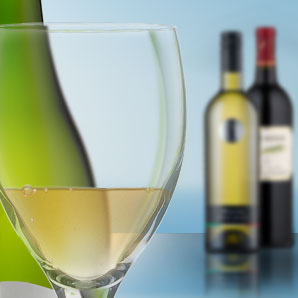 Spanish wines have a colorful history and distinct position in global wine markets. Nearly 3 million acres of this southwestern European country are planted, making it the most widely planted wine-producing nation. Yet Spain follows Italy and France as only the third largest producer of wine in the world and ninth in consumption.
Spanish wines have a colorful history and distinct position in global wine markets. Nearly 3 million acres of this southwestern European country are planted, making it the most widely planted wine-producing nation. Yet Spain follows Italy and France as only the third largest producer of wine in the world and ninth in consumption.
Though Spain's yield per acre is relatively low, more than 600 varieties are present. Even with such an abundance of varieties, 80 percent of Spain's wine production comes from only 20 grapes, including tempranillo, albarino, garnacha, palomino, airen, macabeo, parellada, cariñena and monastrell. Airen is the most widely planted grape in the world and accounts for 30% of white wine produced in Spain. However, in this land of plenty, red-wine production surpasses white by four to one.
Archeologists believe the roots of Spain's wine production date back somewhere between 4000 and 3000 B.C. Evidence indicates that, by the 9th century B.C., while under Roman rule, Spanish wines were widely exported and traded throughout the Roman Empire, although the quality varied. Following the fall of the Roman Empire, barbarians ruled and little is known about the evolution of Spanish wines during that time. Eventually the Moors conquered Spain during the early 8th century A.D. and while the Islamic laws forbade the use of alcohol, the Moorish rulers seemed to have held an ambiguous stance on wine and winemaking.
The discovery of America by Christopher Columbus in 1492 created new export markets for Spain. By that time, exports to England had waned as relations with that country deteriorated due to Henry VIII's divorce from his Spanish wife, Catherine of Aragon. The Spanish Inquisition gave further cause for English merchants to look to the Americas for refuge and new opportunities.
Reviews of Spanish wines have not always been kind. Winemaking has predominately been steeped in tradition, including the prudent use of oak. Some wines would age two decades in the barrel creating distinct flavors that were internationally recognized as wines from regions such as the prestigious Rioja. The tradition of long barrel and bottle age meant that most Spanish wines were ready to drink once they hit the market.
Today the wines from Spain have undergone a metamorphosis with the introduction of new technologies. The advent of temperature-control stainless-steel fermentation tanks radically changed the wine industry in warm climate regions. A new generation of winemakers has started to produce more young wines that are released with very little aging.
Unlike some of their French and Italian counterparts, Spanish wines are still reasonably priced. The exciting wines from Spain represent real value for wine lovers.